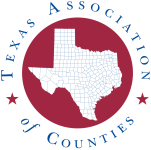News Article | June 27, 2024
AG Opinions and Requests
Attorney General Opinions
KP-0467: Asks whether a person who negotiates a lease of property for the development of a wind power project on behalf of someone else, for payment, needs a license from the Texas Real Estate Commission (RQ-0523-KP). According to Texas law (Occupations Code chapter 1101), certain professionals engaged in real estate transactions, including the negotiation of a lease, must be licensed by the Real Estate Commission. However, leases for mineral or mining interests are excluded from this requirement . Wind is not considered a mineral or mining interest under chapter 1101, nor is it excluded in any other relevant section. Further, under Occupations Code chapter 954, governing land services, wind is categorized as an "other energy source" and not a "mineral." Therefore, a court would likely rule that negotiating wind leases requires a license issued by the Real Estate Commission.
KP-0468: Questions the legality of certain actions of the Ector County Utility District Board of Directors (RQ-0524-KP). Election Code subsection 141.034(a) states that challenges to a candidate's application on the ballot can't be made after the 50th day before the election. Any issues with the application after this period are moot, so a person elected with a flawed application still lawfully holds office. Water Code subsection 49.105(a) requires filling a vacancy on the board of certain water districts within 60 days by appointment. A court likely would conclude that the term "shall" in subsection 49.105(a) is directory in nature. Local Government Code subsection 178.053(a) allows a commissioners court to remove a utility district director for misconduct if, among other things, directors of the district are wholly or partially appointed by the commissioners court. Subsection 178.053(a) does not, therefore, apply to a municipal utility district whose directors are elected rather than appointed. Section 66.001 of the Civil Practice and Remedies Code allows an action in quo warranto in certain instances, including when a person unlawfully holds an office or a public officer forfeits his or her office. It imposes no factual threshold that mandates an action in the nature of quo warranto, but instead lays out the grounds for when the remedy is "available" and gives the Attorney General or a district or county attorney the discretion whether to petition the court.
Requests for an Attorney General Opinion
RQ-0542-KP: Senate Committee on State Affairs. Asks whether the First Amendment allows Texas state agencies to restrict the political activities of the consultants, advisers, and representatives of their contractors.
RQ-0543-KP: Nueces County District Attorney. Asks whether a district clerk can refuse to electronically file a document in a criminal case if the clerk thinks the document fails to comply with the Judicial Committee on Information Technology Standards.
RQ-0544-KP: Webb County Attorney. Asks questions relating to whether a taxing unit is entitled to recover attorney's fees pursuant to Property Tax Code section 33.48 in certain circumstances.
RQ-0545-KP: Senate Committee on Nominations. Seeks clarification on whether a mentally incapacitated person under guardianship can represent themselves in civil or criminal cases.

